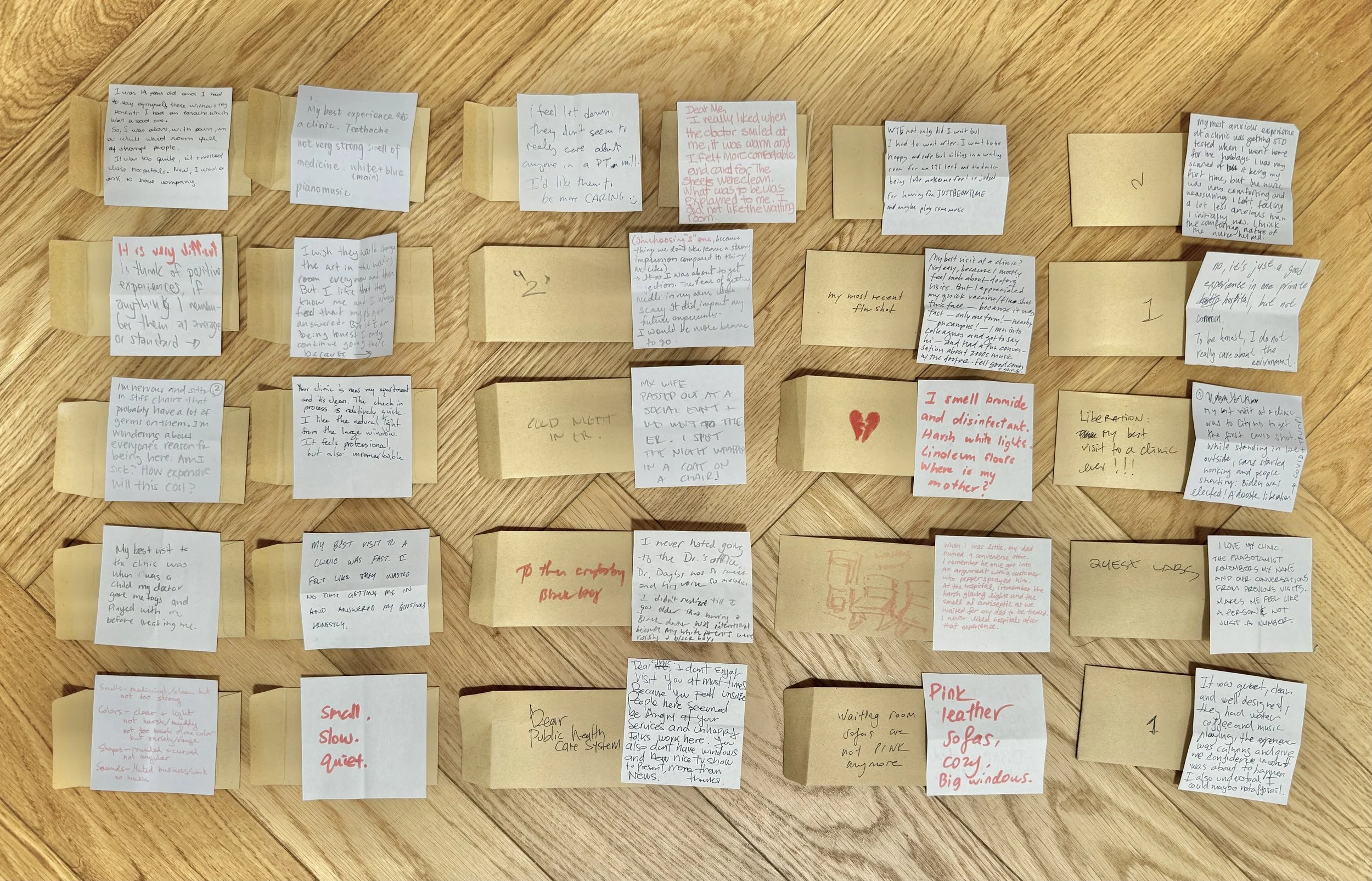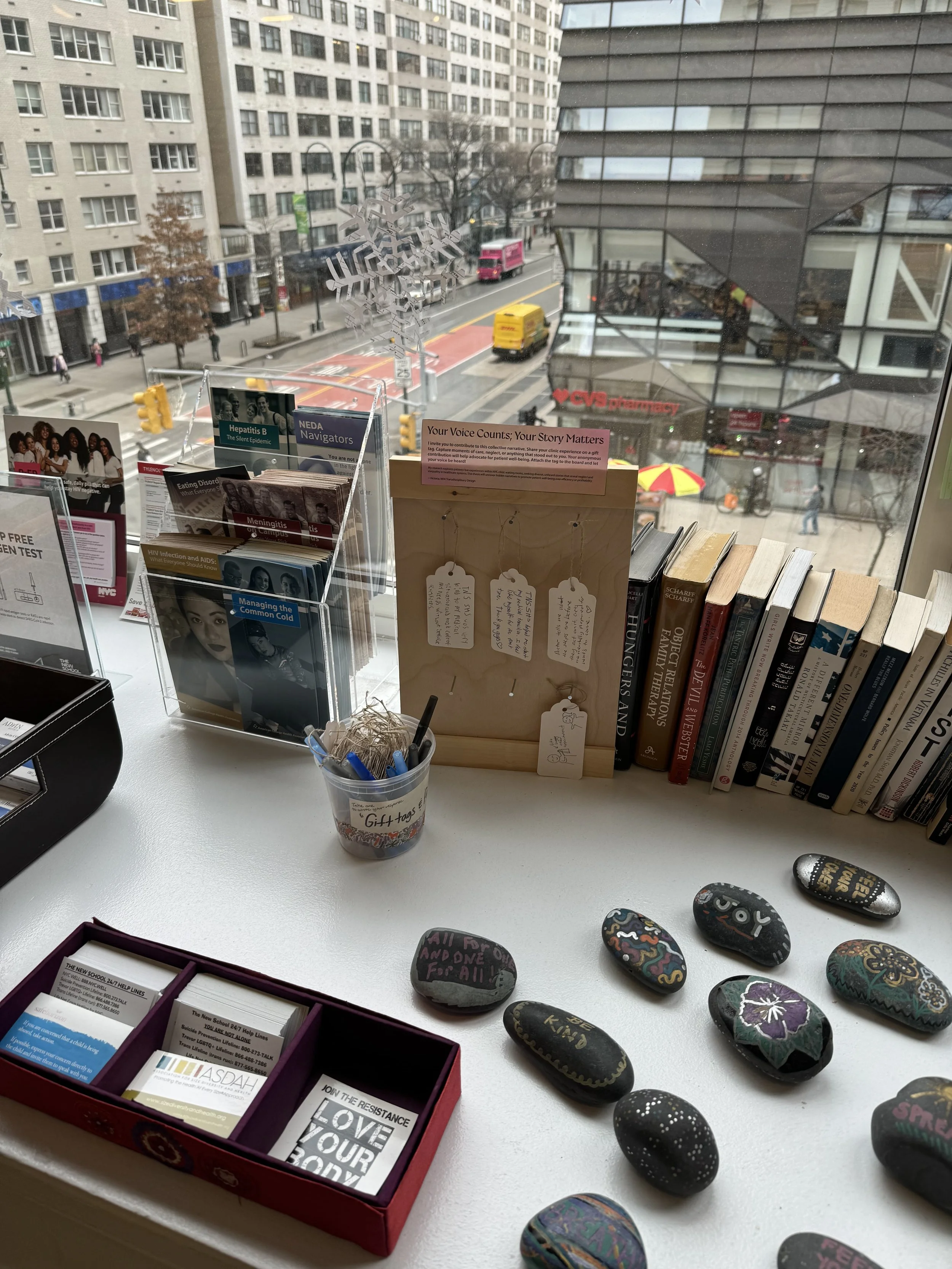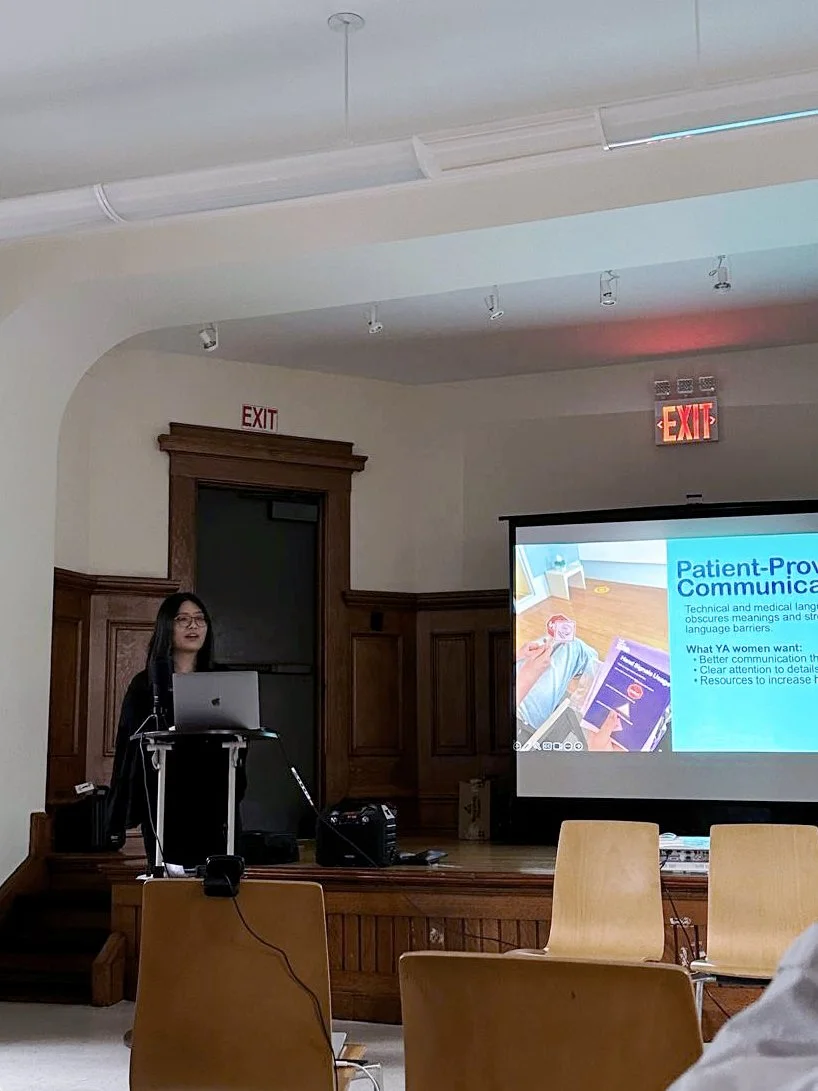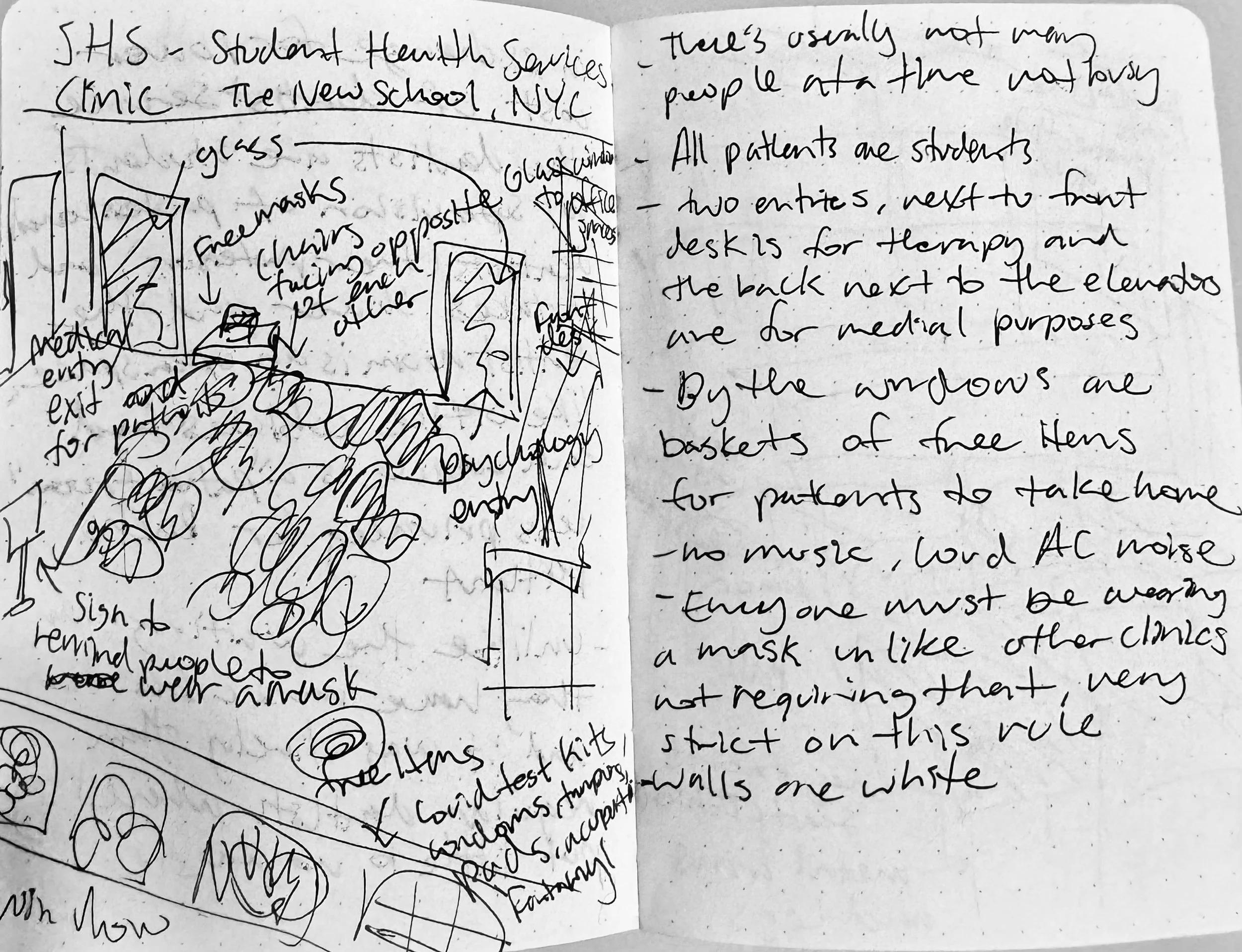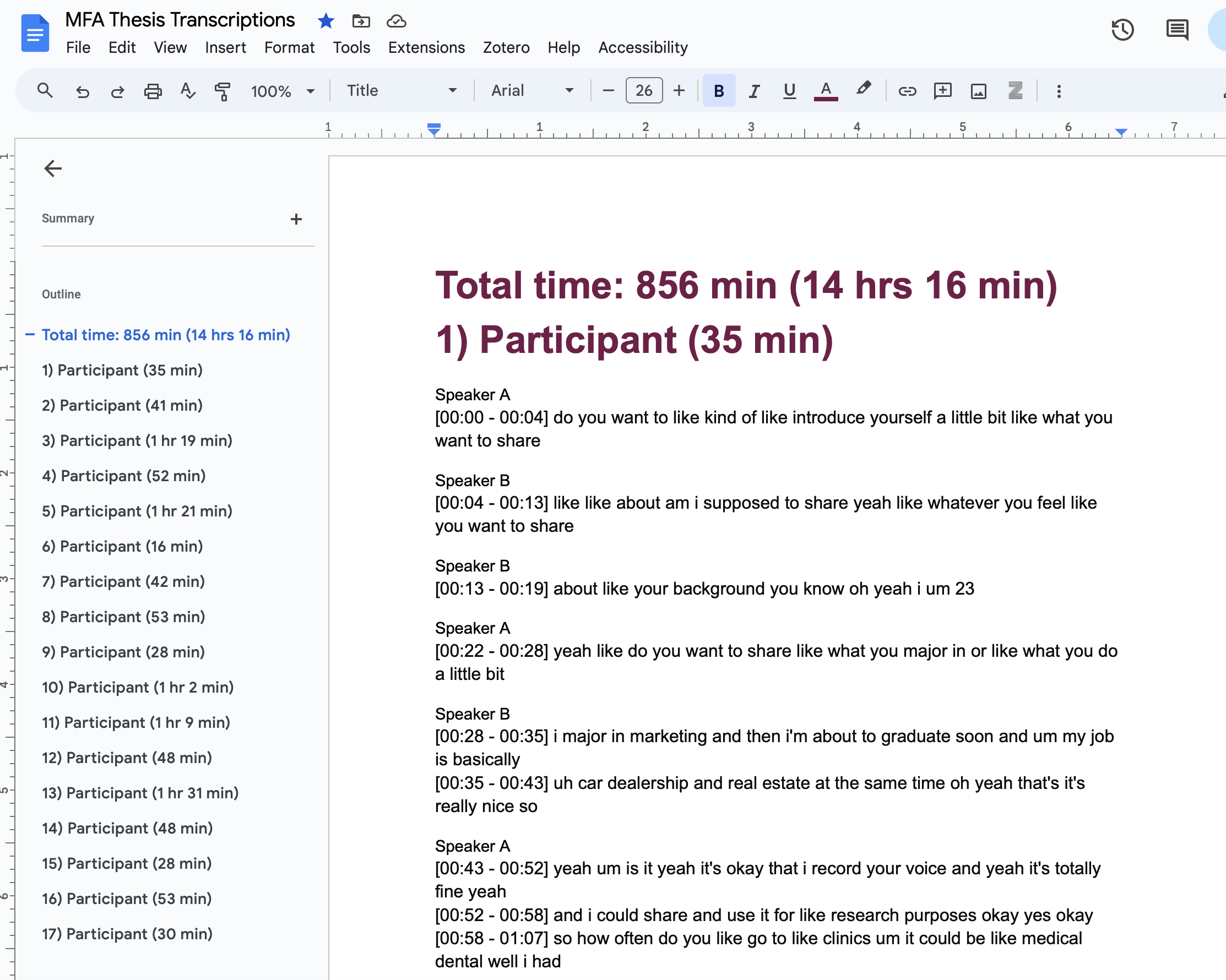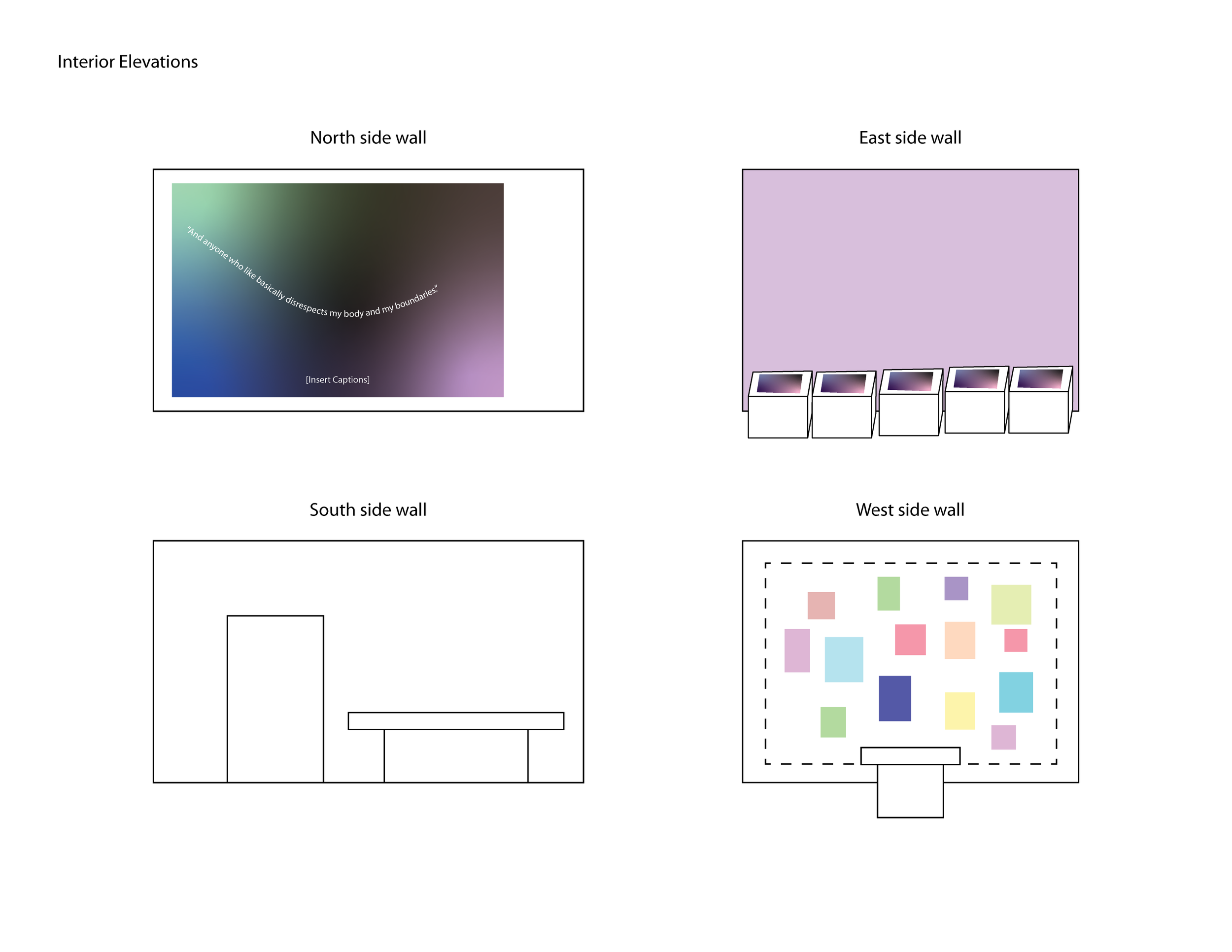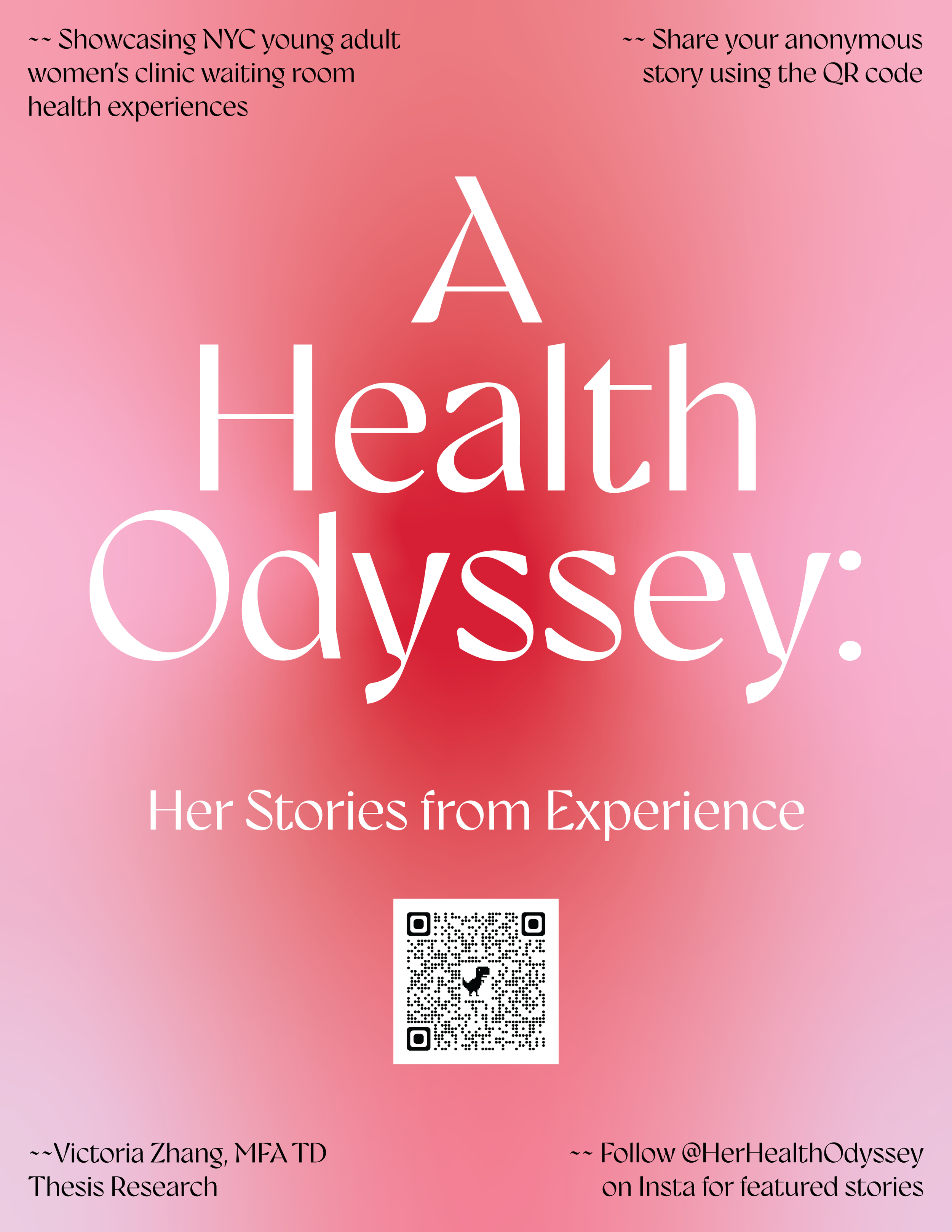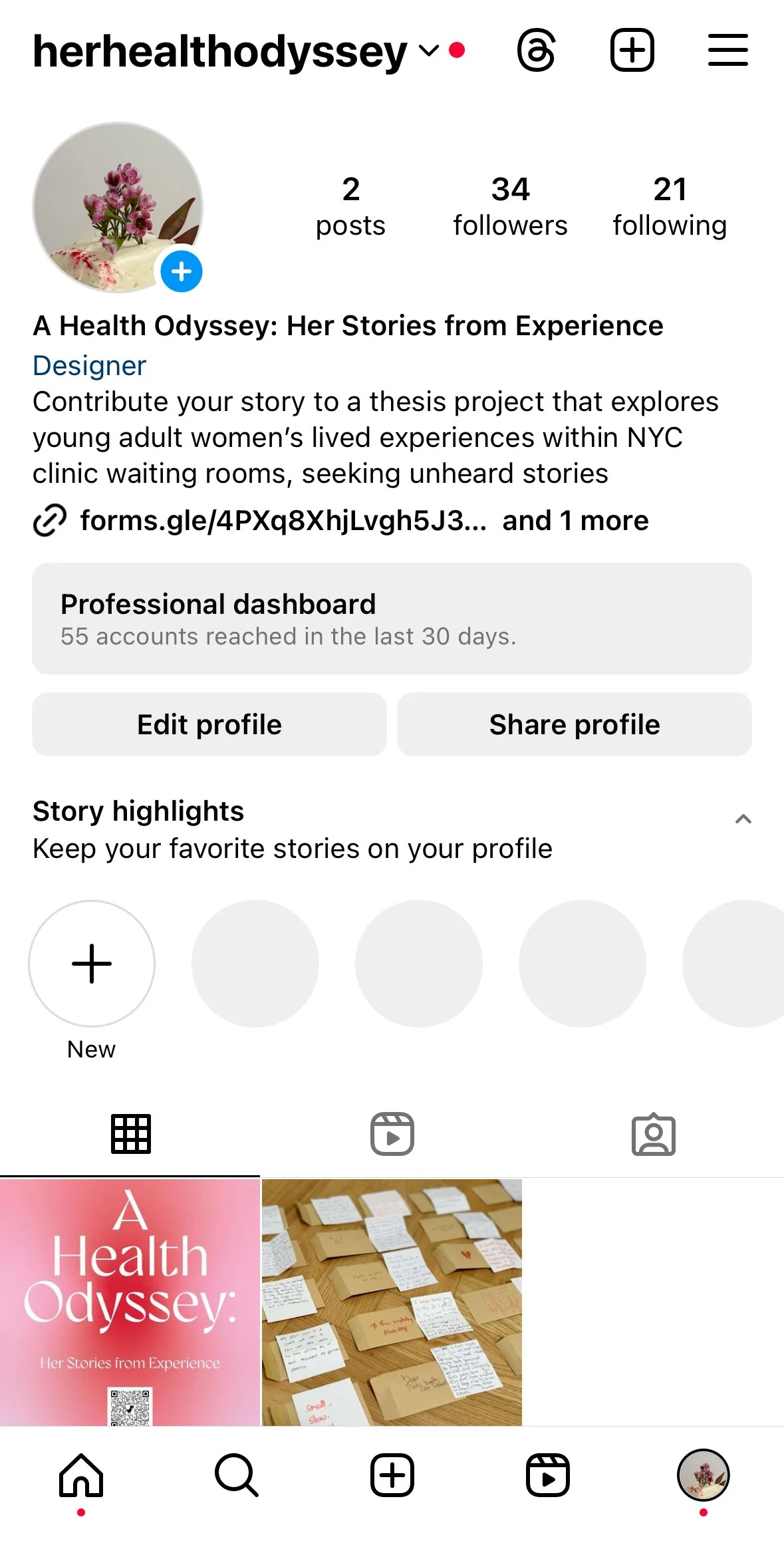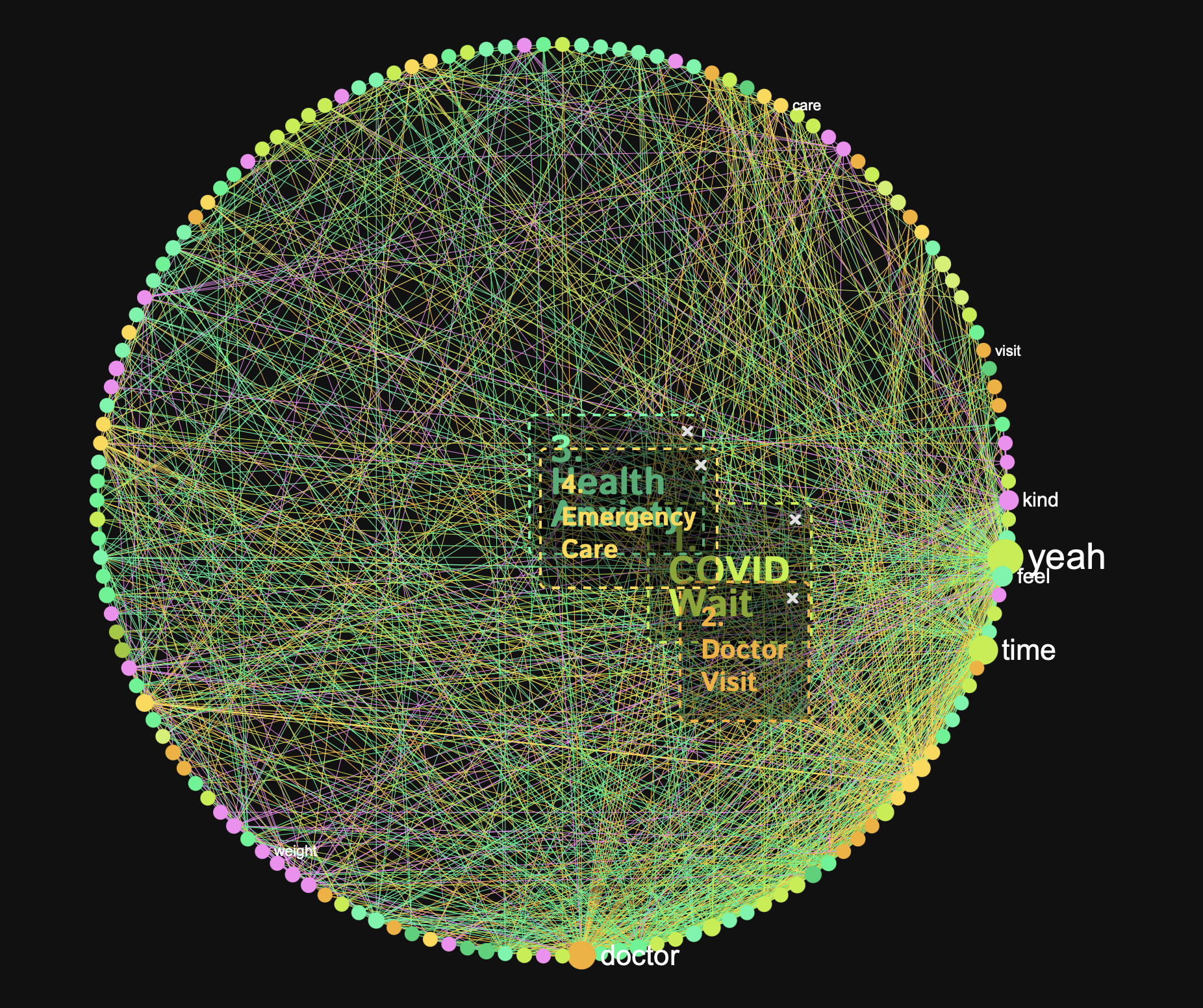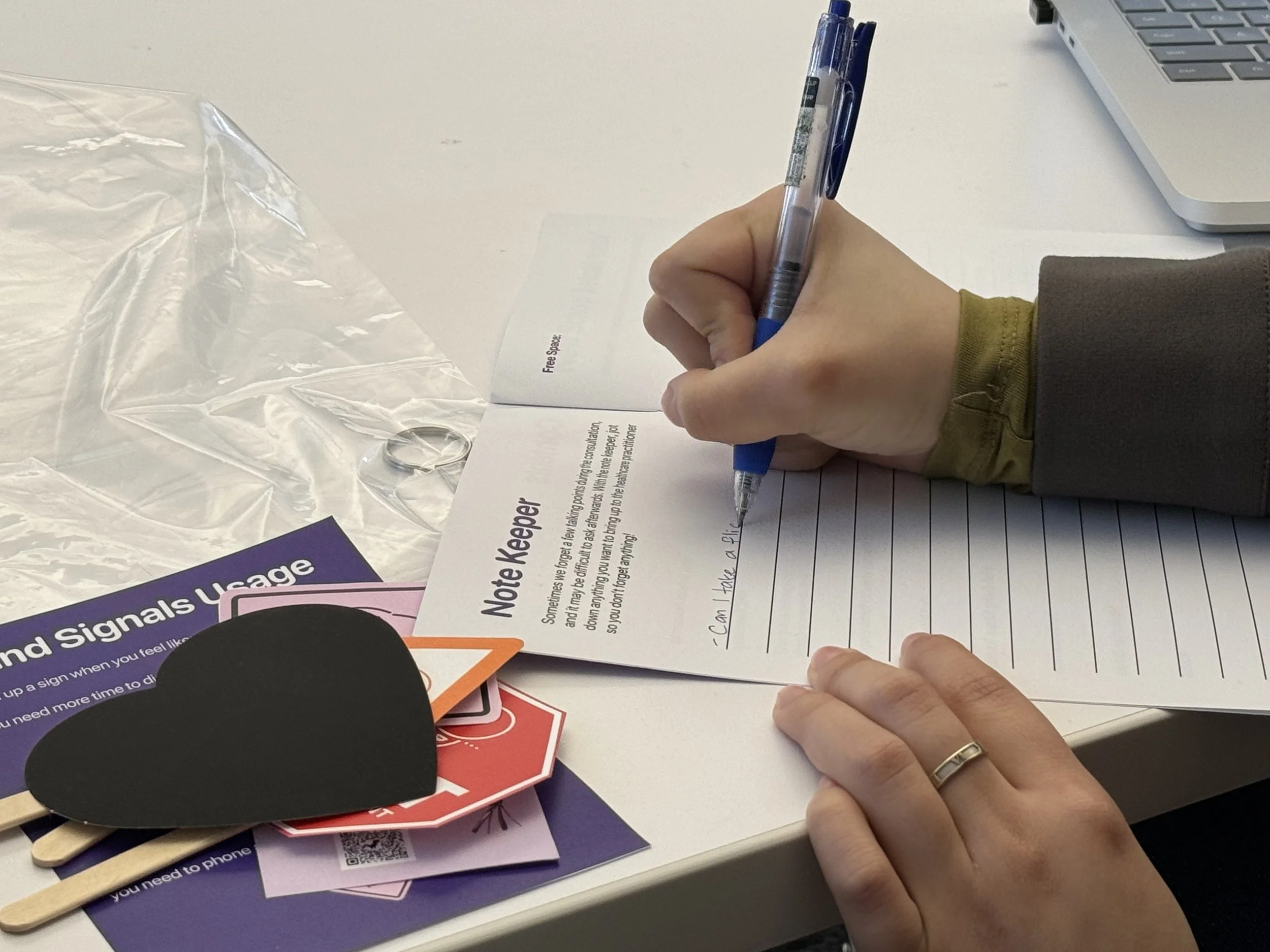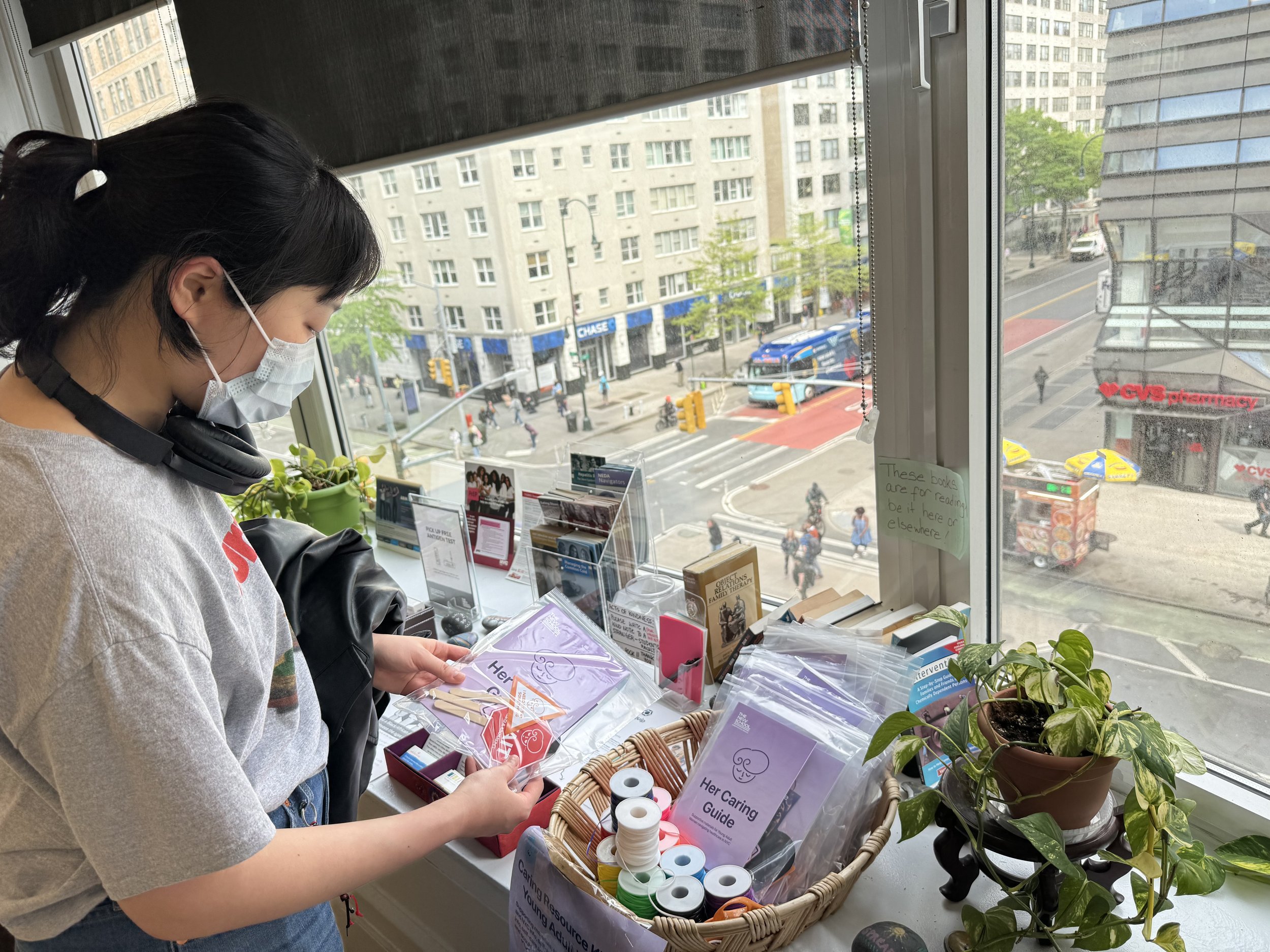
Her Health Odyssey: Embodied Young Adult Women’s Experiences in Clinics
MFA Thesis | Design Research | Service Design | Strategic Design
Abstract
My research is an exploration of young adult patients’ lived experiences within NYC clinic spaces, seeking diverse, unheard stories that reveal neglect and inequality in healthcare systems. By employing methods of participatory art installations, intimate conversations, cultural probes, support circles, textual analysis, observations, and other ways of gathering information with a focus on using sensory ethnography, this research will uncover hidden narratives to voice out patient distress, to center patients’ well-being over efficiency or profitability. In what ways do these overlooked stories reveal instances of neglect? What do patients think and feel while awaiting care? What communication patterns influence experiences? Collecting participants’ stories and the diversity of patient perspectives prompts inspiration and motivation to improve clinical spaces to nurture compassionate care, build trusting relationships, and develop supportive patient environments. After analyzing the research insights, my thesis narrowed to the young adult women population, impacted more by unequal healthcare services and experiences.
Introduction
My research explores young adult (YA) women’s lived experiences within NYC spaces, seeking unheard stories to illuminate how their gender shapes their healthcare encounters. This study aims to prioritize well-being, dignity, and compassionate care. The amplified voices captured in this research shed light on the embodied experiences of those in need and inspire transformations in healthcare practices. Although all ages in the population experience anxiety, YAs are the ones who experience the highest anxiety among all age groups, which is the deciding factor of which age group I focus on in my research. I first began by focusing on YAs in NYC, but most of the participants involved with my primary research have been women, so NYC YA women’s (between the ages of eighteen to thirty) healthcare experiences in clinic spaces became my true thesis investigation. The transition and narrowing down of my topic came smoothly, as some of my questions aligned with YA women. In what ways do the diverse and unheard stories of YA patients in clinic waiting rooms reveal instances of systemic neglect and inequality within healthcare systems? How do sensory-rich clinic waiting rooms contribute to or alleviate anxiety among YA patients seeking care?
For my thesis project, I will showcase the stories gathered and provide ways to increase effective communication and support for YA women patients navigating the clinic space independently, without their family’s presence. My thesis responds to the societal challenge of gender inequality in healthcare, where systemic biases and structural barriers often lead to disparities in access, treatment, and outcomes for women. To amplify YA women’s voices and raise awareness on this topic, I created an online platform on Instagram to share these stories with a broader audience. This living archive also promotes the Google form so that more YA women can contribute their stories. For a physical approach, I proposed speculative exhibition designs for a possible exhibit dedicated to understanding YA women’s experiences in NYC clinics. It will also feature their voices in various formats, such as audio, text, and imagery. Ideally, it would be a sole exhibit requiring collaboration from the participants. As a more direct approach towards transforming YA women’s experiences, I am developing a resource kit in collaboration with The New School’s Student Health Services (SHS). It will be catered specifically to the needs of the YA women attending that clinic.
YA Women’s Resource Kit Ad
I had the opportunity to collaborate with SHS and produce this resource package for young adult women in our university community. It is my proposition, which I hope will spark transformation in their clinic experiences.

